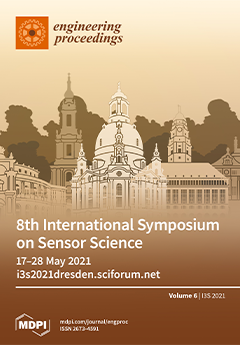Respiratory tract infections have the highest rates of antibiotic prescriptions where symptoms like fever, cough, and rigors are regularly misinterpreted and where bacterial infections cannot be distinguished from viral ones. Nevertheless, it has been recently suggested that C-reactive protein (CRP), a protein produced by the liver in response to infection, could serve as a potential biomarker for the precise differentiation of these two types of infections. Thus, its quick and accurate detection would potentially reduce the unnecessary antibiotic use. To this end, we present an easy and sensitive approach for the selective detection of C-reactive protein (CRP) by liquid-gated carbon nanotube field effect transistors (LG-CNTFET). Herein, CNT-networks were deposited between electrodes via controlled dielectrophoretic deposition and then functionalized with a novel specific antibody and a polyethylene glycol (PEG) layer in order to overcome the Debye screening. The successful fabrication and functionalization were confirmed by scanning electron microscopy. The results showed a selective and reproducible detection down to picomolar concentrations in PBS buffer without complicated microfluidics. The simplicity and high sensitivity of this sensor platform make it a promising tool for the quick and precise differential diagnosis of viral and bacterial infections.

Respiratory tract infections have the highest rates of antibiotic prescriptions where symptoms like fever, cough, and rigors are regularly misinterpreted and where bacterial infections cannot be distinguished from viral ones. Nevertheless, it has been recently suggested that C-reactive protein (CRP), a protein produced by the liver in response to infection, could serve as a potential biomarker for the precise differentiation of these two types of infections. Thus, its quick and accurate detection would potentially reduce the unnecessary antibiotic use. To this end, we present an easy and sensitive approach for the selective detection of C-reactive protein (CRP) by liquid-gated carbon nanotube field effect transistors (LG-CNTFET). Herein, CNT-networks were deposited between electrodes via controlled dielectrophoretic deposition and then functionalized with a novel specific antibody and a polyethylene glycol (PEG) layer in order to overcome the Debye screening. The successful fabrication and functionalization were confirmed by scanning electron microscopy. The results showed a selective and reproducible detection down to picomolar concentrations in PBS buffer without complicated microfluidics. The simplicity and high sensitivity of this sensor platform make it a promising tool for the quick and precise differential diagnosis of viral and bacterial infections.
